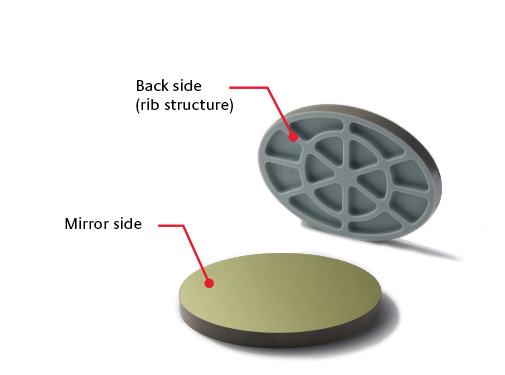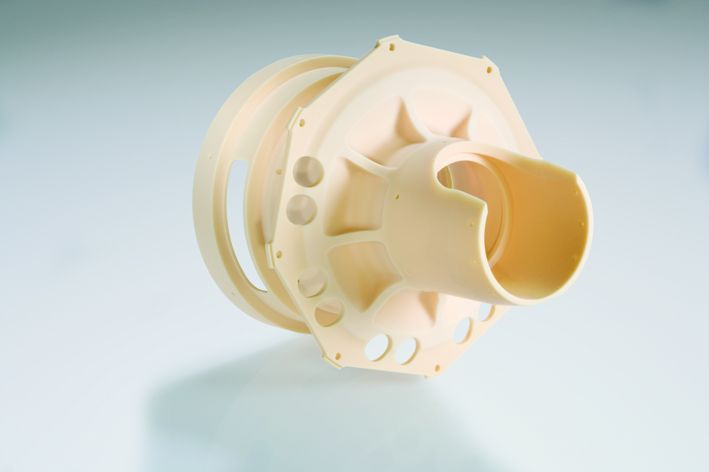Fine Ceramics in Space
Kyocera, one of the leading ceramic manufacturers, presents its products relevant to aerospace and astronomy applications at Space Tech Expo 2019 in Bremen from November 19th-21st.
- Corporate
- Fine Ceramic Components
Kyoto/London - During Space Tech Expo 2019, Kyocera will showcase, amongst other materials and components, its specializations in cordierite, silicon-infiltrated silicon carbide, alumina and zirconia materials which are well-suited for the demanding requirements of this industry.

Cordierite
Cordierite is an extremely low thermal expansion ceramic, which is ideal for light-weight designs of mirrors and telescopes. The forming capabilities of Kyocera allow for a more efficient processing and light-weighting, while the material properties of cordierite (CO720), such as high stiffness and long-term dimensional stability, serve functional advantages over low thermal expansion glasses in such applications. Cordierite can be used both for telescope mirrors, which are now made to sizes of over one meter, as well as for structural parts which hold the mirrors in place. Kyocera’s highly accurate assembly techniques can produce an entire optical system with positional tolerance of a few microns.
Silicon infiltrated silicon carbide
Kyocera’s silicon-infiltrated silicon carbide (SiSiC) and its manufacturing and joining technologies allow the monolithic production of intricate, fine-detailed and complex components in a large-scaled format up to 1 m x 1 m x 650 mm, and in near future even larger. Moreover, components with water- and helium-tight inner cooling channels, undercuts, rib and fin structures can be realized. With the high thermal conductivity, strength, and hardness of SiSiC, this material is perfectly suited for manufacturing very complex components like shaped mirrors, optical assemblies, frames, fixtures, temperature control and structural components.

Alumina and Zirconia
Kyocera is also very experienced in traditional ceramic materials like alumina and zirconia. The high electrical insulation and thermal strength of alumina (F99,7) allows its use in components of ion thrusters. When required, Kyocera also supports the metallization of ceramics, along with in-house 5 axis CNC machining which can be used for manufacturing complex components with very high complexity such as camera housing. Excellent performance of the products in ultra-high vacuum is guaranteed by minimal desorption and leakage rate.
Kyocera recently expanded its manufacturing presence in Europe by acquiring two German ceramic manufacturing plants in Selb (Kyocera Fineceramics Precision GmbH) and Mannheim (Kyocera Fineceramics Solutions GmbH). With these acquisitions, in addition to its other international production facilities in Japan and USA, Kyocera comprehensively offers the entire know-how and variety of fine ceramics to the market worldwide.

